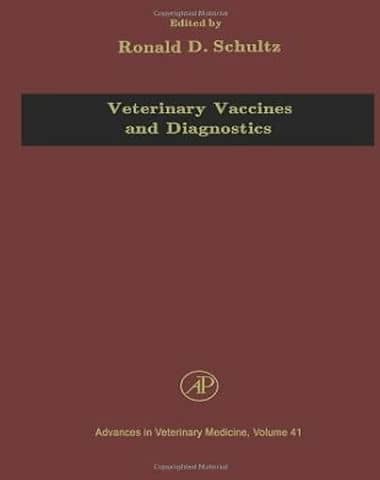This volume of Advances in Veterinary Medicine, derived in part from the First Veterinary Vaccines and Diagnostic Conferences, deals with vaccines, an especially active area of veterinary research and controversy.
Veterinary Vaccines and Diagnostics

This book presents a comprehensive view of veterinary vaccines and diagnostics-past, present, and future. The authors were all participants in the First International Veterinary Vaccines and Diagnostics Conference (IVVDC) held during the summer of 1997 at the Monona Terrace Convention Center, Madison, Wisconsin, USA.
The topics covered herein are especially timely because of the many changes and new developments in veterinary vaccinology and diagnostics that have taken place during the past 10 years. Information on vaccines and diagnostics for virtually all the major animal species, both wild and domesticated, is included. There are many discussions on new methodologies currently being used to develop safer and more effective vaccines and for the development of rapid, effective, and simple diagnostics. In veterinary medicine, in contrast to human medicine, vaccines and associated diagnostics must be cost effective; thus, certain vaccines and diagnostics must sell for pennies if they are to be used for selected species, such as poultry. Monetary restrictions rather than any scientific/technological constraints place more significant constraints on the development of products for many of the domesticated species served by veterinary medicine.
Related Book: Veterinary Vaccines: Principles and Applications
New methodologies, especially those resulting from advances in recombinant DNA technology, are making possible the development of vaccines for diseases for which there are no conventional vaccines and of replacement of conventional vaccines with safer and/or more effective vaccines as needed. New and improved diagnostics, some of which can be used with special “marker vaccines” to control or maybe some day eradicate certain diseases, are also presented. Contributors discuss methods for licensing vaccines and standardizing certain procedures and protocols worldwide to improve and simplify certain processes that are highly diverse and costly. Global distribution of many of the vaccines and diagnostics makes harmonization necessary and will help ensure the cost effectiveness of the new products.
Direct Link For Paid Membership: –
This Book is Available For Premium Members Only (Register Here)
Unlock 3000+ Veterinary eBooks or Go To Free Download
Direct Link For Free Membership: –
| File Size: | 42 MB | |
| Download Link: | Click Here | |
| Password: | PDFLibrary.Net (if Required) | |
